From Molecules to Organisms: Structures and Processes

Educators and Parents, Sign Up for The Cheat Sheet
Weekly updates to help you use Science News Explores in the learning environment
Thank you for signing up!
There was a problem signing you up.
-
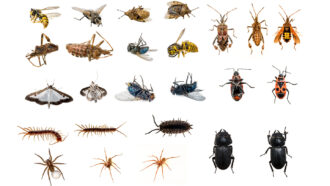 Animals
AnimalsExplainer: Insects, arachnids and other arthropods
Arthropods are all around us, but identifying them can be hard. To start, look at the four main groups: chelicera, crustaceans, myriapods and insects.
-
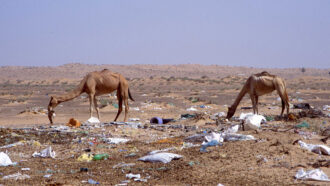 Environment
EnvironmentCamels have been dying after mistaking plastic for food
Plastic waste has been building up in the guts of some camels. It may now be killing off one percent of them in the United Arab Emirates each year.
By Asher Jones -

Scientists Say: Respiration
Breathe in and out, that’s respiration. Have a cell break down sugars for energy, and that’s respiration too.
-
 Brain
BrainLoneliness makes our brains crave people
An area of the brain that lights up when hungry people see food also revs up when lonely people see social activities.
-
 Brain
BrainA taste map in the brain is a scattering of tiny flavor islands
Some senses are highly organized in the brain. Taste is not. And that points to just how important it is.
-
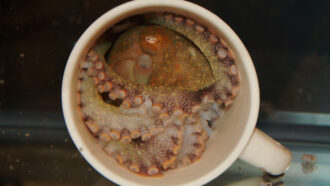 Animals
AnimalsTouching allows octopuses to pre-taste their food
Special sensory cells in their arms’ suckers sense chemicals. Those cells allow them to taste the difference between food and poison.
-
 Health & Medicine
Health & MedicineStrongest bones come from Goldilocks recipe of exercise and rest
Building strong bones for life depends on adolescents staying active and getting enough sleep. Sometimes a lot of sleep, like 11 hours!
-
 Psychology
PsychologyCan’t remember? Maybe you multitask too much between screens
Splitting your attention between devices can make it hard to create new memories, even when you’re not multitasking.
-
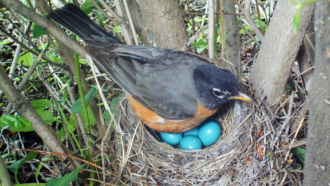 Animals
AnimalsScientists Say: Medullary bone
Medullary bone is a layer that forms inside bird and dinosaur bones. It’s a source of the calcium in eggshells.
-
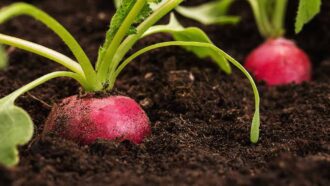 Plants
PlantsHow to grow your own science experiment
Does fertilizer help plants grow better? You might expect it to, but how can you know? This experiment will help you test it yourself.
-
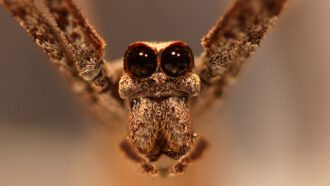 Life
LifeOgre-faced spiders listen closely to snatch bugs from the air
Ogre-faced spiders can hear prey sneaking around behind them. Low frequencies can trigger a blind, backwards attack.
-
 Health & Medicine
Health & MedicineScientists Say: Apoptosis
When it’s time for cells to die, they need to do it carefully, so they don’t harm other cells.